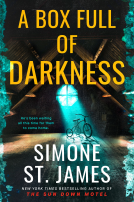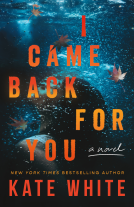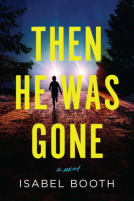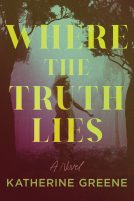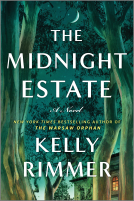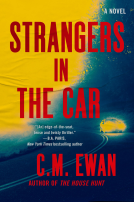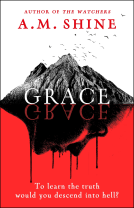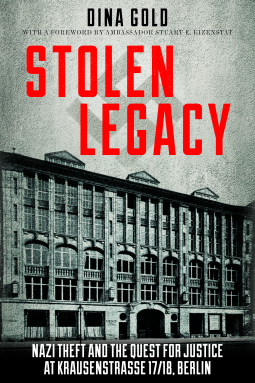
Stolen Legacy
Nazi Theft and the Quest for Justice at Krausenstrasse 17/18, Berlin
by Dina Gold
This title was previously available on NetGalley and is now archived.
Send NetGalley books directly to your Kindle or Kindle app
1
To read on a Kindle or Kindle app, please add kindle@netgalley.com as an approved email address to receive files in your Amazon account. Click here for step-by-step instructions.
2
Also find your Kindle email address within your Amazon account, and enter it here.
Pub Date Jun 15 2015 | Archive Date Aug 05 2015
ABA Publishing | Ankerwycke
Description
Stolen Legacy is a non-fiction historical narrative centered around a German Jewish family’s legal battle to reclaim ownership of a building stolen from them by the Nazis in the 1930s. The building at Krausenstrasse 17/18 in Berlin was seized by a German businessman with direct ties to the very top of the Nazi Party hierarchy and German Railways - the state-owned organization that participated in the logistics of sending millions of Jews across Europe to the death camps—and was the head of the Victoria Insurance Company, then and now one of Germany’s top insurance companies which, according to the book, played a role in insuring the Auschwitz death camp during World War Two.
The book, written by the daughter of one of the original owners of the building, details the history of the Wolff family’s ownership of the building, its confiscation by the Nazis, and the family’s 50 year legal fight to reclaim ownership of the building, which was finally awarded to them in 2010. There has been no previous written account of a successful claim of a property seized by the Nazis in Germany. Former US Ambassador to the European Union, Stuart E. Eizenstat, has written the book’s foreword.
Advance Praise
"The research for stolen assets remaining in Hitler’s Germany lead some survivors of famous German Jewish families to write historic and moving works which mix at the same time judicial investigations and human epics – that's the case for Dina Gold's “Stolen Legacy”. Her property becomes in a way the reader's property and we follow with a great interest and intensity her efforts to recuperate not only a material legacy but the entire history of her family.
-Serge Klarsfeld, (French) Lawyer and Nazi hunter
The Holocaust—the project of exterminating Europe’s Jews--was an immense act of murder. It was also an immense act of theft. The murder was, of course, the incomparably greater crime. The dead could never be brought back to life. The ash from crematoria was dumped into rivers or spread across fields; the bodies shot into ravines decomposed in Europe’s mutilated earth. Yet the stolen property—of those who were murdered and the minority who escaped or otherwise survived—was seized and passed on, first by the Nazis and then by the governments that followed, to new possessors, public and private. Some pretended to own that property; most knew its real origins; few were willing to part with it. This is the story of a single such property that, by indefatigable effort, was reclaimed, at least partly, two generations later. It’s the story of the theft. But it’s also, by inference, a small part of the story of the murder. And it’s the story of a rare act of belated and incomplete, but symbolically resonant, historical justice.
-Walter Reich, Yitzhak Rabin Memorial Professor of International Affairs, Ethics and Human Behavior, and former Director of the United States Holocaust Memorial Museum
"An exceptional adventure in Holocaust literature. Dina Gold combines investigative journalism with a keen sense of history to uncover a story everyone should read."
-Marvin Kalb, a Harvard professor emeritus, now senior adviser to Pulitzer Center, former network correspondent.
German Jewish families, not necessarily the very richest, were among the leading art collectors in the country. After 1933 almost all these collections were taken over, or, not to mince words, stolen. Some were acquired by Nazi leaders such as Goering, others went to museums, yet others to private hands, and some were hidden or destroyed as "degenerate art" Dina Gold tells the fascinating story of the uphill attempts of one such family--her own-to regain what had been stolen. It is an amazing story but the reader is well advised to remember that it is by no means unique.in some cases justice has been done, in others imperfect justice, and in others yet no justice at all.
-Walter LAQUEUR, the leading historian is the author of among many other words Weimar, a cutural history.
Dina Gold has written a crisp, page-turning nonfiction whodunit, and proves herself to be an unyielding sleuth in the pursuit of justice for her family. At the same time, it is meticulously researched journalism that provides a fresh perspective on history.
-Nadine Epstein
Available Editions
| EDITION | Hardcover |
| ISBN | 9781627229708 |
| PRICE | $26.95 (USD) |

